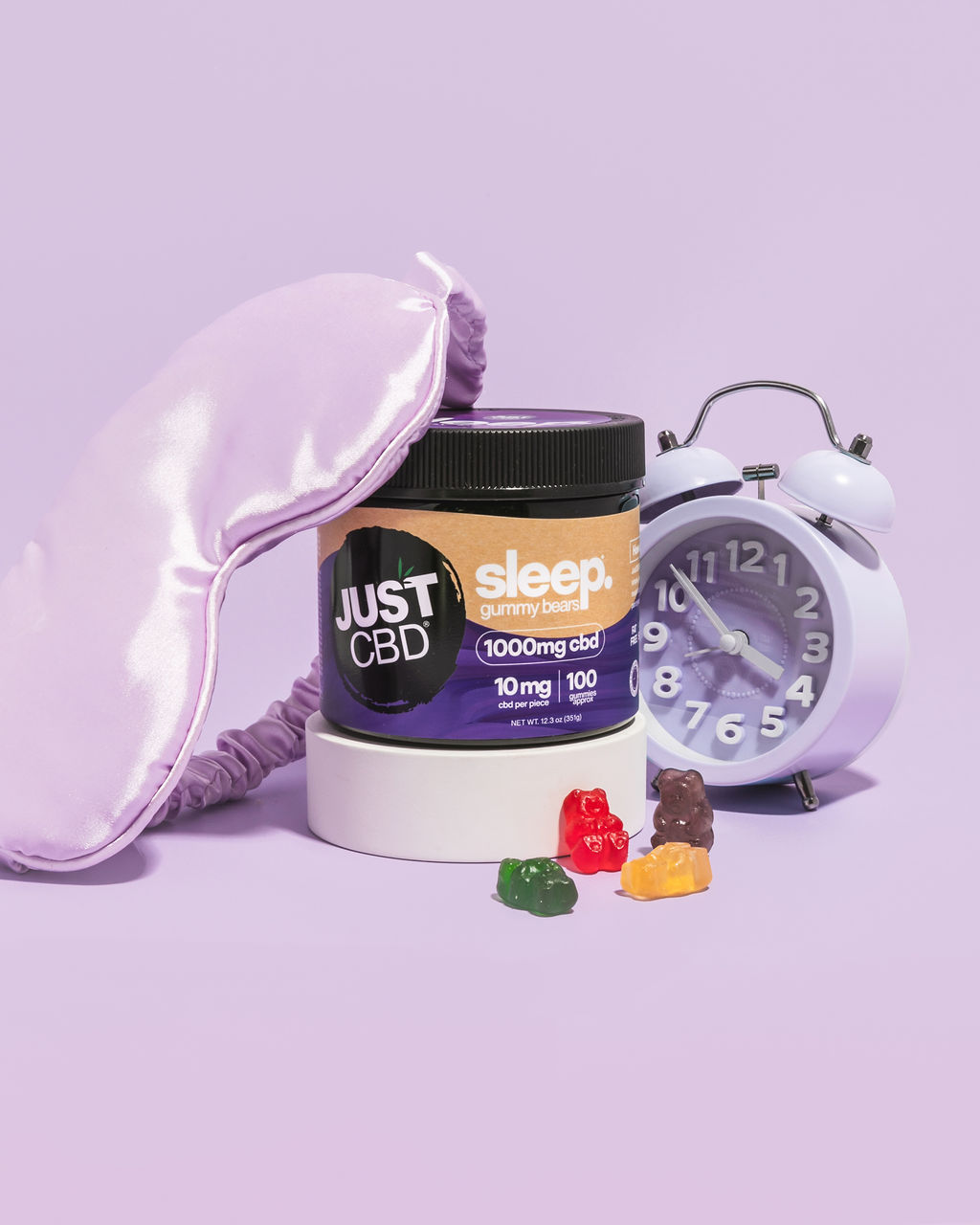Potential Benefits of CBD for PTSD
Post-traumatic stress disorder (PTSD) is a complex mental health condition that can significantly impact an individual’s life. While traditional treatments like therapy and medication exist, many are seeking alternative approaches to manage their symptoms. Cannabidiol (CBD), a non-psychoactive compound found in hemp, has garnered attention for its potential therapeutic benefits, particularly for conditions like anxiety and insomnia, which often accompany PTSD.
CBD and the Endocannabinoid System
Post-traumatic stress disorder (PTSD) is a debilitating mental health condition that can profoundly impact an individual’s life. While traditional treatments like therapy and medication exist, many individuals seek alternative approaches to manage their symptoms. One such approach gaining increasing attention is the use of cannabidiol (CBD), a non-psychoactive compound found in cannabis plants.
CBD interacts with the body’s endocannabinoid system (ECS). This complex network of receptors and neurotransmitters plays a crucial role in regulating various physiological processes, including mood, sleep, pain perception, and inflammation. Research suggests that imbalances in the ECS may contribute to PTSD symptoms. By modulating the ECS, CBD may help alleviate some of these symptoms.
Neurotransmitter Modulation
Research suggests that CBD might offer potential benefits for managing symptoms of post-traumatic stress disorder (PTSD) through its influence on neurotransmitter modulation. CBD is known to interact with the body’s endocannabinoid system, which plays a crucial role in regulating various physiological processes, including mood, anxiety, and sleep. Studies have indicated that CBD may help modulate the activity of neurotransmitters like serotonin, dopamine, and GABA, all of which are implicated in PTSD symptoms such as anxiety, depression, and nightmares.
Mechanisms of Action
Understanding how cannabidiol (CBD) interacts with our bodies is crucial to grasping its potential benefits. CBD’s mechanisms of action involve complex interactions with the endocannabinoid system, a vast network of receptors and neurotransmitters that play a critical role in regulating various physiological processes including mood, sleep, pain perception, and inflammation. By influencing these systems, CBD may offer therapeutic effects for conditions like PTSD.
Reducing Anxiety and Stress
CBD gummies have gained popularity as a potential natural remedy for managing symptoms associated with post-traumatic stress disorder (PTSD). While research is ongoing, several proposed mechanisms of action suggest how CBD may contribute to reducing anxiety and stress in individuals with PTSD.
One key mechanism involves CBD’s interaction with the endocannabinoid system (ECS), a complex network of receptors found throughout the body. The ECS plays a crucial role in regulating various physiological processes, including mood, sleep, and inflammation. By modulating the activity of ECS receptors, particularly CB1 and CB2 receptors, CBD may help to restore balance within this system and alleviate symptoms of anxiety and stress.
Improving Sleep Quality
CBD gummies offer a potentially helpful avenue for managing PTSD symptoms by addressing key mechanisms involved in the disorder. Studies suggest that CBD interacts with the endocannabinoid system, a complex network of receptors involved in regulating mood, sleep, and stress response. This interaction may help reduce anxiety and promote relaxation, easing the hypervigilance and intrusive thoughts commonly experienced by individuals with PTSD. Furthermore, CBD has shown promise in improving sleep quality, which is often disrupted in PTSD. By reducing racing thoughts and promoting restful sleep, CBD gummies can contribute to overall symptom management and improved quality of life for those struggling with PTSD.

Managing Intrusive Thoughts
Cannabidiol (CBD) is a compound found in hemp that has gained popularity for its potential therapeutic effects. While research is ongoing, several mechanisms are believed to be responsible for CBD’s potential benefits in managing PTSD symptoms.
- Serotonin Receptor Modulation: CBD interacts with serotonin receptors in the brain, particularly the 5-HT1A receptor. This receptor plays a vital role in regulating mood, anxiety, and stress response. By influencing serotonin signaling, CBD may help reduce anxiety and improve emotional well-being in individuals with PTSD.
- Neuroinflammation Reduction: Chronic stress associated with PTSD can contribute to neuroinflammation, which further exacerbates symptoms. Studies indicate that CBD possesses anti-inflammatory properties and can potentially reduce neuroinflammation, thereby alleviating some of the mental and physical distress linked to PTSD.
- Glutamate Receptor Regulation: Glutamate is a neurotransmitter involved in learning and memory but can become overactive in individuals with PTSD. CBD may modulate glutamate receptors, potentially reducing excessive neuronal excitation and associated hyperarousal symptoms commonly experienced by those with PTSD.
Scientific Evidence and Research

Scientific evidence plays a crucial role in understanding the potential benefits and risks of various treatments, including those involving natural compounds like CBD. Research methodologies, such as clinical trials and observational studies, provide valuable data to assess the effectiveness and safety of interventions. By examining the underlying mechanisms of action and evaluating outcomes through rigorous scientific inquiry, we can gain a more comprehensive understanding of how CBD might contribute to managing symptoms of PTSD.
Clinical Trials on CBD for PTSD
Scientific evidence and research on the effectiveness of CBD for PTSD are still emerging. While some preliminary studies suggest potential benefits, more robust clinical trials are needed to confirm these findings. Several small studies have shown that CBD may help reduce anxiety, improve sleep quality, and decrease hyperarousal in individuals with PTSD.
A 2019 study published in the Journal of Psychopharmacology found that CBD significantly reduced anxiety symptoms in patients with social anxiety disorder. Another study published in the journal Neurotherapeutics reported that CBD improved sleep quality in individuals with PTSD. However, these studies were relatively small and further research is needed to determine the long-term effects and optimal dosage of CBD for PTSD treatment.
Clinical trials involving larger sample sizes and controlled settings are crucial for establishing the efficacy and safety of CBD for PTSD. These trials will help researchers understand the specific mechanisms by which CBD may exert its effects, as well as identify any potential side effects or interactions with other medications.
Preclinical Studies
Preclinical studies, which involve research conducted on animals rather than humans, provide valuable insights into the potential effects of CBD on PTSD-related behaviors. Studies using animal models have demonstrated that CBD administration can reduce anxiety-like behavior, improve sleep quality, and decrease hyperactivity – symptoms often associated with PTSD.
These preclinical findings suggest that CBD may hold promise as a therapeutic agent for PTSD, but it’s important to remember that results from animal studies do not always translate directly to humans. Further research is needed to confirm these findings in human clinical trials and determine the optimal dosage and treatment protocols for CBD in managing PTSD symptoms.
While preclinical studies offer encouraging preliminary evidence, it’s crucial to emphasize that further investigation is necessary to fully understand the potential benefits and risks of CBD for PTSD.
Limitations of Current Research
While there is growing interest in CBD as a potential treatment for PTSD, it’s important to acknowledge the limitations of current research. Many studies on CBD and PTSD are small, have methodological flaws, or rely on self-reported data, making it difficult to draw definitive conclusions about its efficacy and safety.
Furthermore, the optimal dosage and delivery method of CBD for treating PTSD remain unclear. More research is needed to determine the appropriate dosages and formulations for different individuals and symptom severities.
Long-term studies are also lacking, making it impossible to assess the potential risks or benefits of long-term CBD use for PTSD.
Finally, individual responses to CBD can vary widely due to factors such as genetics, metabolism, and pre-existing medical conditions. What works for one person may not work for another.
Dosage and Administration
Dosage and administration of CBD gummies are crucial factors to consider when exploring their potential therapeutic benefits for managing PTSD symptoms.
Recommended CBD Dosage for PTSD
Recommended CBD dosages for PTSD can vary depending on factors such as individual body weight, metabolism, and the severity of symptoms. A common starting dose is between 20-40 milligrams per day, taken in divided doses throughout the day. It’s important to start with a low dose and gradually increase it until desired effects are achieved while monitoring for any potential side effects.
Consulting with a healthcare professional is crucial before using CBD for PTSD or any other medical condition. They can help determine an appropriate dosage, assess potential interactions with existing medications, and provide guidance on safe and effective use.
CBD Gummies vs. Other Delivery Methods
CBD gummies offer a convenient and discreet way to consume CBD, but they’re not the only delivery method available. Other options include tinctures, capsules, oils, topicals, and vape products.
Dosage of CBD can vary depending on individual needs, weight, and the severity of symptoms. It’s important to start with a low dose and gradually increase it as needed until desired effects are achieved. When starting any new supplement, consulting with a healthcare professional is recommended to determine the appropriate dosage and ensure there are no potential interactions with existing medications.
Potential Side Effects and Interactions
It’s essential to be aware of potential side effects and interactions associated with CBD gummies, especially when considering their use for managing PTSD symptoms.
Common Side Effects of CBD
Like all medications and supplements, CBD can have potential side effects and interactions with other substances. While generally considered safe, it’s important to be aware of these possibilities.
- Drowsiness: One common side effect is drowsiness or fatigue. This may be especially noticeable when starting CBD or taking higher doses.
- Dry Mouth: CBD can sometimes lead to dry mouth, a relatively minor but uncomfortable side effect.
- Diarrhea: Some individuals may experience diarrhea as a side effect of CBD use.
- Changes in Appetite: CBD has been reported to affect appetite in some people, potentially leading to increased or decreased food intake.
It’s important to note that CBD can interact with certain medications, including:
- Blood thinners: CBD may enhance the effects of blood-thinning medications, increasing the risk of bleeding.
- Anticonvulsants: CBD could potentially interact with anticonvulsant drugs, affecting their effectiveness.
- Sedatives: Combining CBD with sedative medications can increase drowsiness and sedation.
Drug Interactions with CBD
CBD’s interaction with the body can lead to certain side effects and interactions, especially when used with other medications.
- Drowsiness: CBD can cause drowsiness in some people, which may interfere with daily activities or driving. It is important to start with a low dose and monitor for any sedative effects.
- Changes in Appetite and Weight: Some individuals experience changes in appetite or weight after using CBD.
- Drug Interactions: CBD can interact with certain medications, such as blood thinners, antidepressants, and anticonvulsants. It is crucial to consult a healthcare professional before using CBD if you are taking any medications.
- Liver Problems: In rare cases, CBD use has been linked to liver problems. Individuals with pre-existing liver conditions should exercise caution when using CBD.
Buy CBD Gummies for enhanced mood
Try tasty cbd edibles via JustCBD
Bronzed Body Spray Tan
Camilla James
- Who Shouldn’t Get Botox? - November 17, 2025
- What Is Sexual Autonomy And How It Influences Modern Dating - November 16, 2025
- Weed Drinks Vs Cannabis Edibles: Pros And Cons - November 13, 2025
